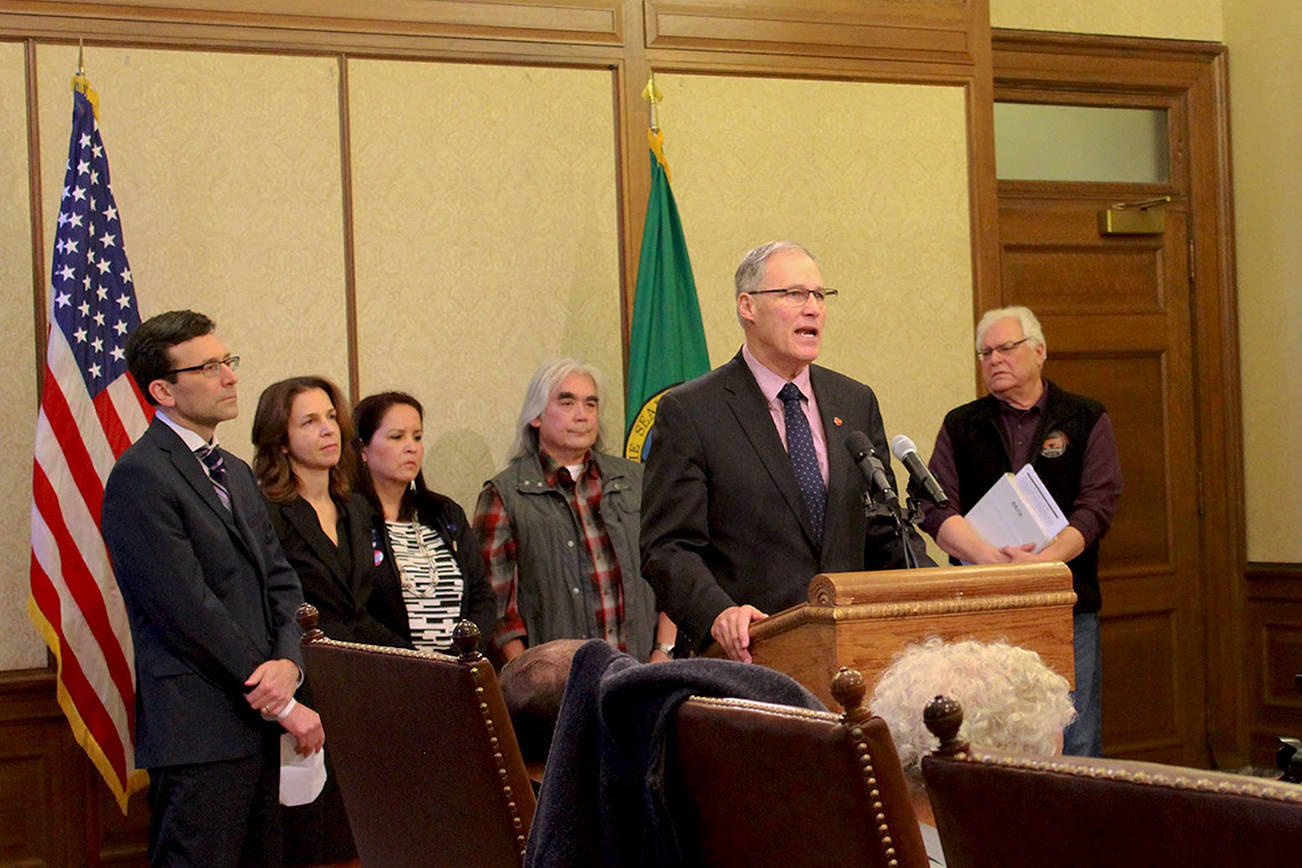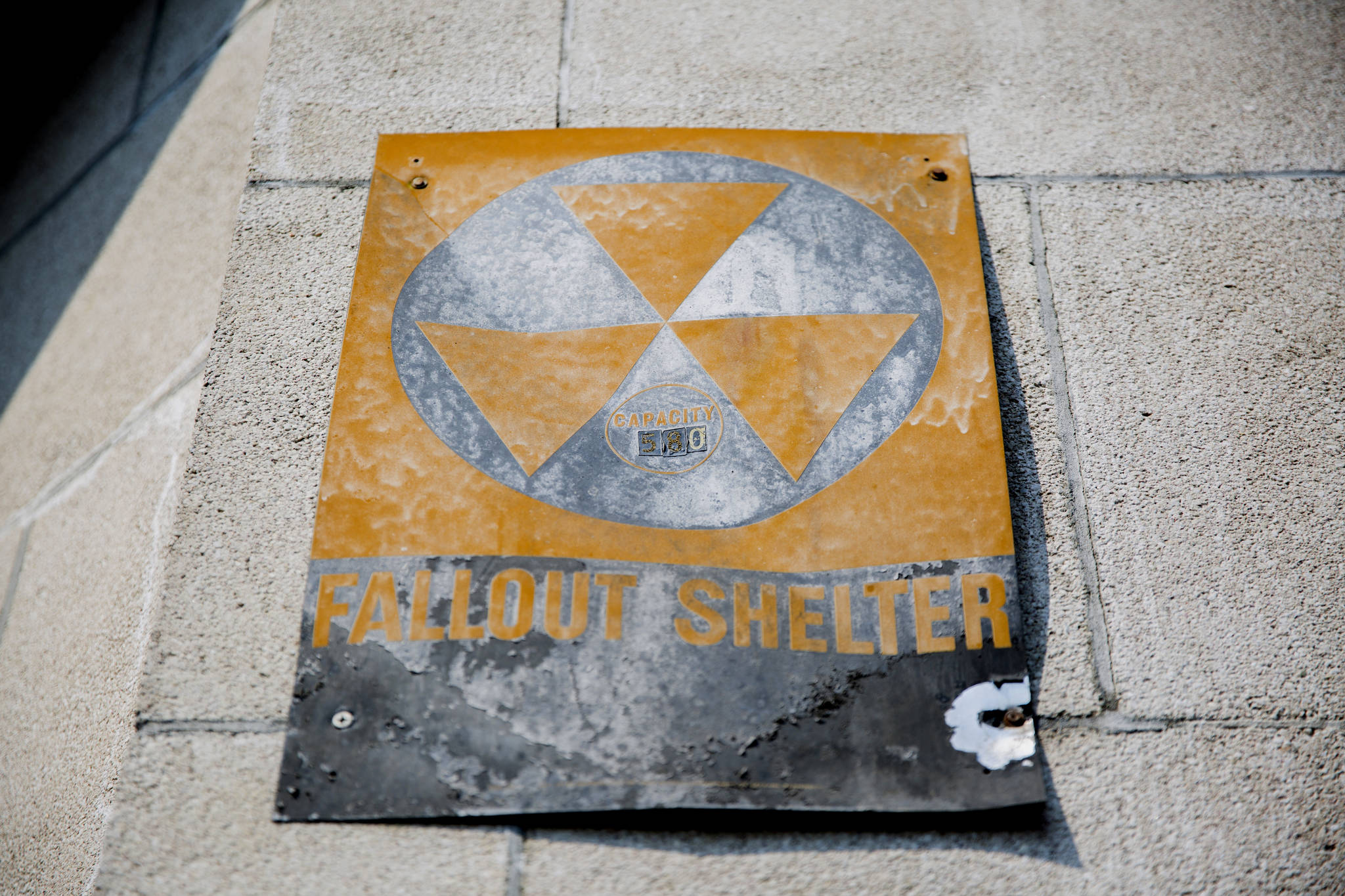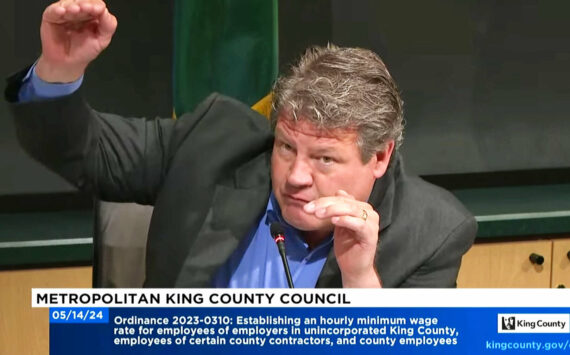On Monday, Gov. Jay Inslee announced his intention to resist any Trump administration plan to develop offshore drilling in Washington state. He plans to protect what he called the “best coastline” in the United States.
In January, U.S. Secretary of Interior Ryan Zinke announced federal plans to lease oil and gas reserves on U.S. coastlines between 2019 and 2024. So far, no company has come forward with plans to drill for gas or oil in Washington state.
Even so, “the inevitable risk is unacceptable in some of the best beaches in the world,” Inslee said during a Feb. 5 press conference. “This is not a hypothetical or an abstraction.”
Inslee pointed to the 1988 Nestucca spill in Grays Harbor, which poured oil across 110 miles of the state’s coastline. The governor said the incident should serve as a stark reminder of the dangers of the oil industry.
Washington state Attorney General Bob Ferguson and Commissioner of Public Lands Hilary Franz joined the governor in lambasting the Department of the Interior’s decision, and Ferguson promised legal action should plans progress any further.
“The bottom line is this: If they go forward, they will see us in court,” Ferguson said. “There is a reason why we have yet to lose a court decision with this administration.”
There is currently no oil or gas production in Washington state. Historically, 600 gas and oil wells have been drilled, but there has never been a large-scale commercial production, according to the Department of Natural Resources. A small amount of oil was produced near Ocean City between 1957 and 1961.
On Jan. 22, Ocean Shores became the first city in Washington to adopt a resolution banning offshore drilling, citing the need for clean water and abundant wildlife.
“We are gravely concerned by efforts in that other Washington to open up our coast,” Ocean Shores Mayor Crystal Dingler said. “If the oil rigs comes, most of us won’t be able to see them, but we will see the effect of their presence.”
A few days after the federal government released its plan, Zinke announced that Florida would be exempt from offshore drilling, a move that drew bipartisan criticism from governors in coastal states. Along with Inslee, governors from Oregon, New York, New Jersey, and the Carolinas said they don’t want offshore drilling in their states.
Regarding Florida’s exemption, Inslee did not hold back from pointing the finger at Republican Gov. Rick Scott, who Inslee said is a friend of Trump. In September, the president said he hopes Scott will run for U.S. Senate, and Inslee said such a campaign could be behind Florida’s exemption. While Scott has yet to announce whether he will seek a spot in the Senate, his current term as Florida governor ends this year, and a term limit prevents him from seeking re-election.
The Washington state governor also indicated Trump’s ownership of the Mar-a-Lago resort in Palm Beach, Florida as a potential motivator.
Ferguson and Inslee each
wrote a letter to Zinke on Monday morning, with the governor asking Zinke to visit Washington state and experience the Pacific Northwest coastline for himself. The attorney general similarly invited Zinke to the state and presented a number of economic statistics that demonstrate the importance of a healthy coastline.
A document prepared by the governor’s office claims that 4.1 million recreational trips take place on Washington’s coastline each year, bringing in an estimated $481 million. The governor said that there are 11,422 jobs in recreation in coastal counties, and 2,830 jobs in the commercial fishing and seafood industries.
In his letter, Ferguson also reminisced about his own experience with the coastline, including a story of a week-long hike from the Hoh River to Shi Shi Beach (an 80-mile journey) that he took 20 years ago.
Department of the Interior Press Secretary Heather Swift, in response to Inslee’s comments, called the five-year plan an “open and public process,” and said Zinke plans to meet with governors in coastal states to further discuss the matter. Swift also said the Bureau of Ocean Energy Management has 23 public meetings planned in which citizens from coastal states can provide their own feedback.
Inslee said no businesses have expressed an interest in drilling for Washington oil, and he plans to keep it that way. The governor said that while he cannot explicitly prevent drilling from taking place, the prospect could become unattractive to oil companies through a number of legislative techniques like heavy taxes.
“This is a bicoastal, bipartisan revulsion,” Inslee said. “I believe ultimately we will be successful.”
This is an edited version of a report produced by the Olympia bureau of the Washington Newspaper Publishers Association.





